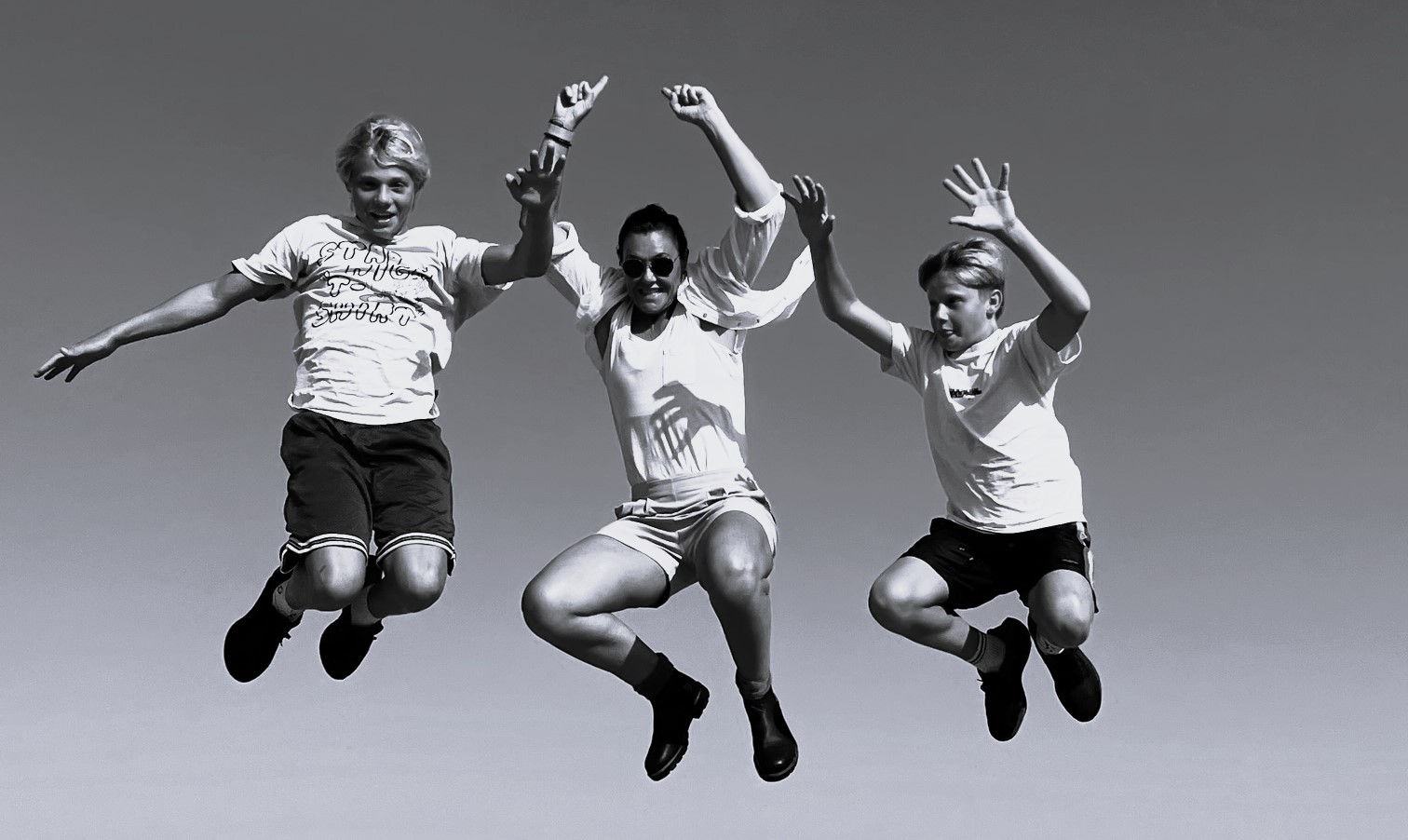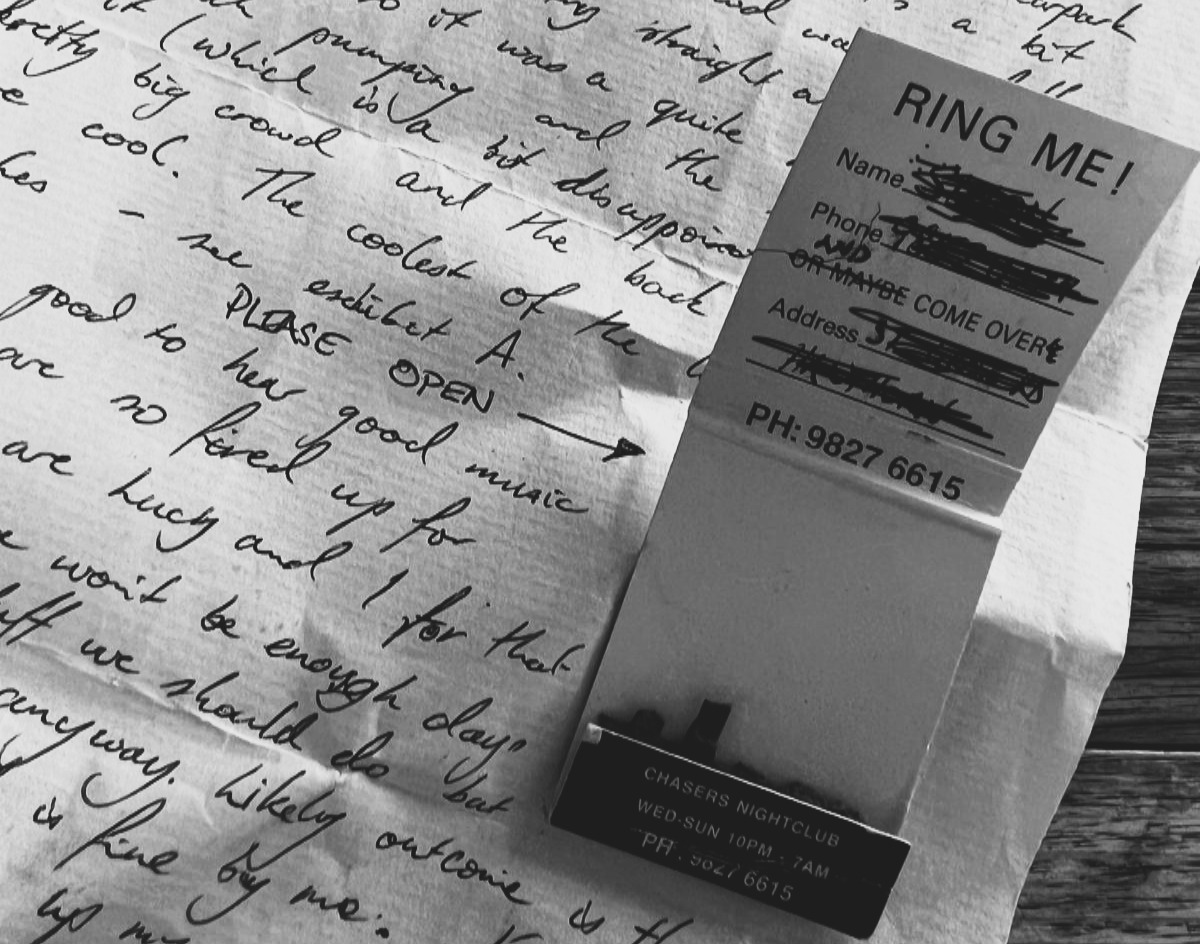I was 24 years old. The September Spring sunshine was beaming down on the Sydney 2000 Olympic Games. The final race… we crossed the finish line in second place – close, but no cigar, as they say.
All I felt was an overwhelming rush of relief. It was finally over.
There I was, my lungs still screaming for oxygen, legs burning with lactate, bobbing in my boat, listening to the thundering roar of an Australian crowd, elated with our result.
My brother, in a fit of maniacal hysteria, dove into the water to swim out and greet us. In his excitement and our laughter, we very nearly capsized the boat, before he was swiftly extracted from the water by stern Olympic security.
I had just crossed over the Olympic finish line – the very point I’d been obsessively working toward for over a decade. We’d come second. A silver medal. A home Olympics. Friends, family, and every one-eyed Australian sports fan had come out to cheer us on to victory. We were some of the favourites going into the event. The pressure had been palpable.
My goal, since I was 14, had been to WIN Olympic gold. I’d never allowed myself to consider anything else. Silver wasn’t part of the plan. Winning was everything – it had been all-consuming.
In the days, weeks, and months after the Games, I was swept up in a whirlwind of celebration – first the Olympic Village, then from one city to the next, from TV appearances and media interviews to ticker-tape parades, official functions, speeches, and after-parties. The world around me was caught up in the fanfare.

But despite the endless celebrations, I couldn’t shake a deep sense of sadness and disappointment. I was devastated. Inside, I felt like I had failed. And yet, no one around me understood. Not one person, apart from maybe my rowing partner, could grasp that this moment could simultaneously feel like a wedding and a wake.
While everyone around me was riding high on the wave of excitement – wanting to share in the joy of our “victory” – I was drowning in the weight of what I was perceiving to be a loss. I was there to win gold, not come second.
The culture around me was screaming that I should be proud, that I should be happy, that I should celebrate. But I wasn’t feeling it. And that created a huge internal conflict. I felt it was taboo, even scandalous, to admit I was anything but thrilled with the result. How could I be disappointed with an Olympic silver medal? How could I express anything but gratitude and joy without sounding like a spoiled brat?
But the truth was, I was struggling. The disconnect between how I was supposed to feel – how everyone wanted me to feel – and what I actually felt was enormous. I couldn’t reconcile it. So I hid my true feelings. I played the part. I kept smiling, kept saying the right things, kept celebrating, repeating the highlights reel that everyone wanted to hear. But inside, I was hurting. I suppressed my emotions, trying to live up to the expectations around me.
And as time went on, I numbed myself. I drowned out my disappointment by socialising too much, drinking too much – anything to distract from the storm that was brewing inside. I was devastated by what to me felt like a loss, but the world only wanted to celebrate the win. And that conflict left me feeling more isolated and alone than ever.
Eventually, the invitations thinned out. The media moved on. The parties stopped. The fanfare of mayhem ground to a halt. And then the reality sank in. IT WAS OVER. I woke up, I was couch surfing at my ex-boyfriend’s share house in St Kilda…
- I had no home. I had been living out of suitcases for years – in sports institutes, at camps, and on tours in Europe. My life was scattered across Canberra, Melbourne, and Ballarat in boxes and bags and suitcases full of training gear and Olympic paraphernalia. Too old and too proud to move back in with my parents on the farm, I was, for all intents and purposes, homeless.
- I had no job, no money. In fact, I was in debt. Leading up to the Olympics, I’d been living off government-funded athlete support, including the meagre and erratic medal incentive and direct athlete support payments of that era. My parents had done more than their fair share to get me through, but I still had about $3,000 in debt on a credit card used to cover the final European and Australian tour. All I had was a 1976 Corolla barely holding itself together – much like me.
- I had no career, no profession, other than the one that had just ended with a loud beep as I crossed the Olympic finish line. I had attempted two different bachelor’s degrees, but my myopic focus on the Olympic campaign derailed any real progress. In an era before online studies, university admin tried their best to accommodate, but I was distracted, and missing entire semesters for tours and camps made studying near impossible. My studies, along with everything else in my life, took a back seat to the Olympic dream.
- I had lost my tribe. My rowing crewmates, teammates, coaches – the people I spent every day with for years – were now scattered, back in their home states, putting their own lives back together. The tight-knit community of friends, physios, psychologists, nutritionists, and supporters – vanished, disbanded. Gone.
- I had lost my identity. Since I was 14, I was ‘Rach the Rower’. I was a professional. I was an athlete. A serious competitor. I was elite, fierce, strong, one of the best. Now, I was… lost. I didn’t know who I was anymore.
- I had lost my physical condition. My health was deteriorating. Detraining set in. A chest infection turned into pneumonia, and I couldn’t shake it. My body was exhausted. I went from being at my absolute superhuman physical peak to drinking daily, eating kebabs at 3am, sick and run down.
- I had lost my routine. I’d gone from a highly regimented and controlled life to one with zero structure overnight. Everything safe and true had flipped upside down, leaving me floating aimlessly, lost.
- I had lost my purpose. The meaning of my life as I knew it had abruptly ended. Everything I had lived for was gone. Finished. I was a ship without a rudder.
Nothing could have prepared me for this. I had been so single-minded, so consumed with the pursuit of Olympic gold, that even thinking about life after the finish line felt like a betrayal. It didn’t matter how many people told me, “You’ll need to find a job, you’ll have to reintegrate into life.” I didn’t listen. It was a “tomorrow” problem, one I couldn’t deal with in the now.
Having devoted my life to winning at the Olympics, I suddenly had to pivot and refocus on building a new identity, a new career, a new life, a routine, and a new network. Navigating the complex emotional landscape of a post-Olympic comedown, whilst starting from scratch in life, relationships, money, and a job is a massive transition.
During this huge time of uncertainty, what I needed was guidance, someone who understood, to reassure me, to illuminate the path, to help me find starting points, clarify my skills, and seek out meaning and a new direction.
For elite athletes, retirement is often one of the most significant and daunting moments of their lives. They’re faced with major decisions about their future identity and purpose, all while navigating a psychological storm.
The contrast between the cheering stadium crowds and the reality of a 9-to-5 life is stark, yet the skills they’ve honed – dedication, self-motivation, and time management – remain invaluable in whatever comes next.
Most athletes are woefully unprepared for the reality of retirement.
The end of a sports career often brings a wave of significant life changes that can feel overwhelming. The loss of their athletic identity leaves many grappling with how to cope. It’s not hard to find headlines of athletes who, after the glory fades, spiral into struggles with mental health, addiction, broken relationships, and even legal trouble.
The truth is, the transition out of sport is an enormous mental and emotional shift.
Suddenly, you’re faced with the daunting task of figuring out what else you have to offer the world. For many, this process is isolating and overwhelming, and without support, it can lead to a downward spiral.
As an Olympic medallist, a career, life, and wellness coach, and a seasoned HR professional with over 25 years of experience, I’m perfectly positioned to support elite athletes through the challenging transition to retirement.
My Life After Sport coaching provides athletes with the guidance, structure, and practical tools needed to navigate this often-turbulent time, offering bespoke 1:1 coaching to help them find purpose and start taking action in a new direction.
Life After Sport coaching is designed to provide the kind of support that I, and so many others, desperately needed during those critical months following retirement. It’s about acknowledging the reality, illuminating the path forward, helping athletes take progressive, meaningful steps towards building a new life, and fostering a sense of purpose that can carry them beyond their sporting careers.
If you are a professional, national team, Olympic/Paralympic athlete or para-athlete transitioning into retirement, or within your first year of retirement, I’d love to connect with you.
Book in for a free 30-minute Life After Sport Clarity call and let’s get chatting.
Kindly share this with anyone in your network who may benefit from this specialised support in their life after sport retirement journey.




